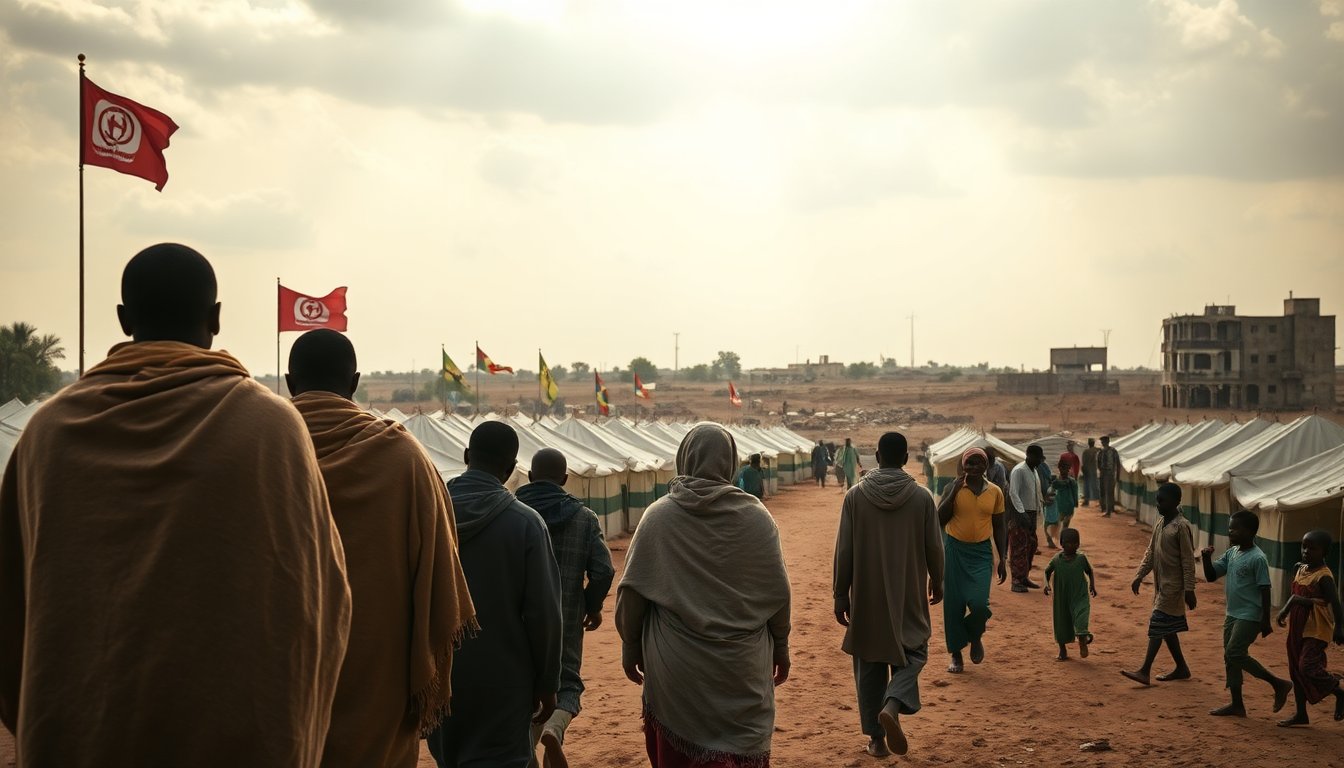Table of Contents
The ongoing conflict in Sudan has reached alarming levels, particularly in the Darfur region, where reports indicate that a paramilitary group has violently taken control of key cities. As civilians escape the chaos, they arrive at refugee camps with harrowing tales of destruction and despair. The humanitarian situation is dire, as thousands remain trapped, and aid organizations fear for their safety amidst rising death tolls.
According to satellite imagery, civilians in El-Fasher, a city that has witnessed gruesome acts of violence, are now confined by newly constructed earthen berms, limiting their chances of escape. The United Nations has expressed grave concerns about the situation, noting that the brutal conflict has already claimed tens of thousands of lives and displaced millions.
The humanitarian crisis intensifies
At a recent UN meeting, Tom Fletcher, the humanitarian chief, criticized the international community for its inadequate response to the escalating crisis in Sudan. He emphasized the ongoing suffering, stating, “Can anyone here say we did not know this was coming?” His words serve as a stark reminder of the urgency needed to address the humanitarian needs of those affected by the conflict.
It is estimated that over 40,000 individuals have lost their lives due to the violence between the Sudanese military and the Rapid Support Forces (RSF). Additionally, more than 14 million people have been displaced, marking this as one of the world’s most severe displacement crises. The UN reports that more than 30 million people in Sudan require humanitarian assistance, and the risks to food security are escalating, threatening to create a major hunger crisis.
Historical context of the conflict
To understand the current situation, it is essential to consider Sudan’s turbulent history. The nation was a joint protectorate of Egypt and the UK until gaining independence in 1956. The internal divisions between the wealthier northern region and the poorer, predominantly Christian south led to two civil wars. The second civil war, lasting from 1983 to 2005, resulted in over two million deaths and ultimately led to the establishment of South Sudan as an independent nation in.
Omar al-Bashir’s rule from 1989 to saw the rise of violent conflicts, including the notorious Darfur War, which began in 2003. This conflict was characterized by widespread atrocities against non-Arab groups, leading to accusations of genocide. The Janjaweed militia, which later evolved into the RSF, was instrumental in these campaigns of violence.
Current dynamics of the power struggle
Since the end of al-Bashir’s regime, the conflict has persisted, with the RSF and Sudanese Armed Forces (SAF) locked in a bitter struggle for power. Despite various attempts at mediation, both factions remain entrenched in their positions, leading to further violence. The involvement of external actors, including the United Arab Emirates, has complicated the situation, with allegations of arms support for the RSF.
The humanitarian situation in Darfur has deteriorated significantly, with reports of mass killings, sexual violence, and other atrocities. International organizations, including Human Rights Watch, have documented numerous instances of ethnic cleansing and war crimes, emphasizing the urgent need for intervention. The UN has labeled the ongoing violence as emblematic of the genocide that occurred in the region in the early 2000s.
Urgent calls for action
In light of the escalating crisis, humanitarian organizations are calling for immediate action to address the needs of those affected. The UN Security Council passed a resolution urging an end to the violence, but negotiations remain stalled. As more refugees flee to neighboring countries, the pressure on already strained resources is immense.
The World Food Programme has warned that time is running out to address the looming hunger crisis, as humanitarian access remains a critical concern. With hospitals and vital infrastructure under attack, the risk of disease outbreaks is increasingly likely. The situation is dire, and without urgent intervention, the humanitarian nightmare in Sudan could worsen.


